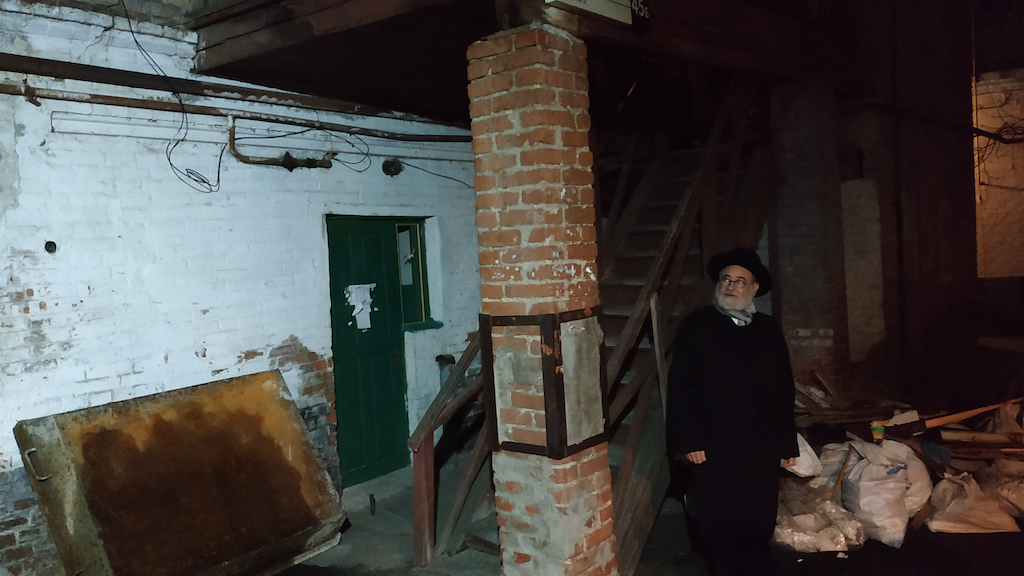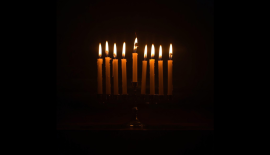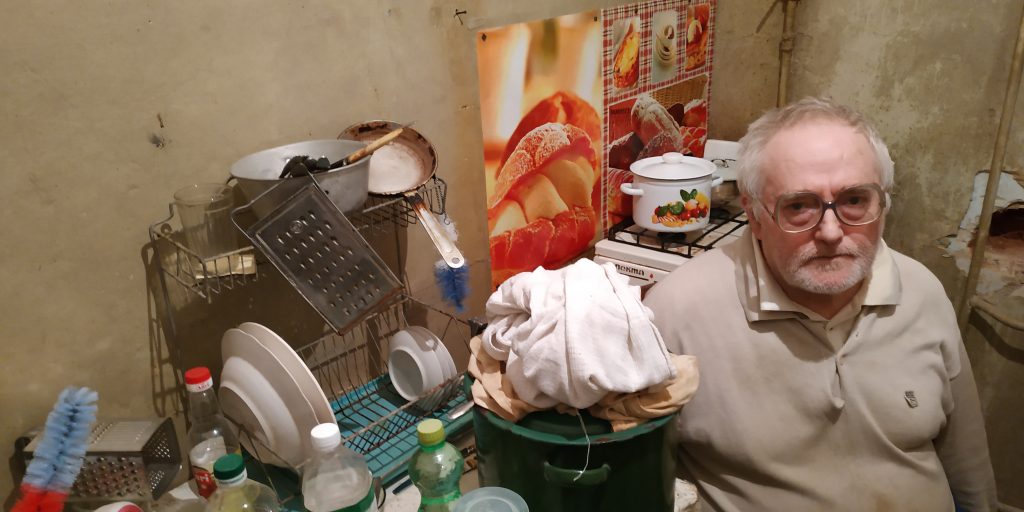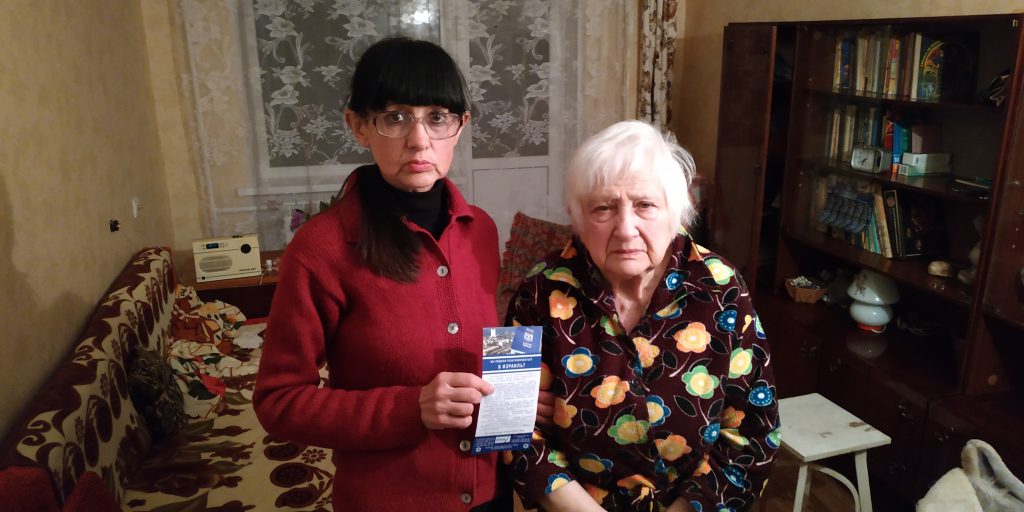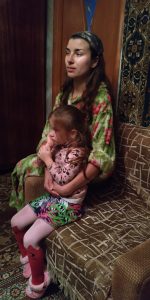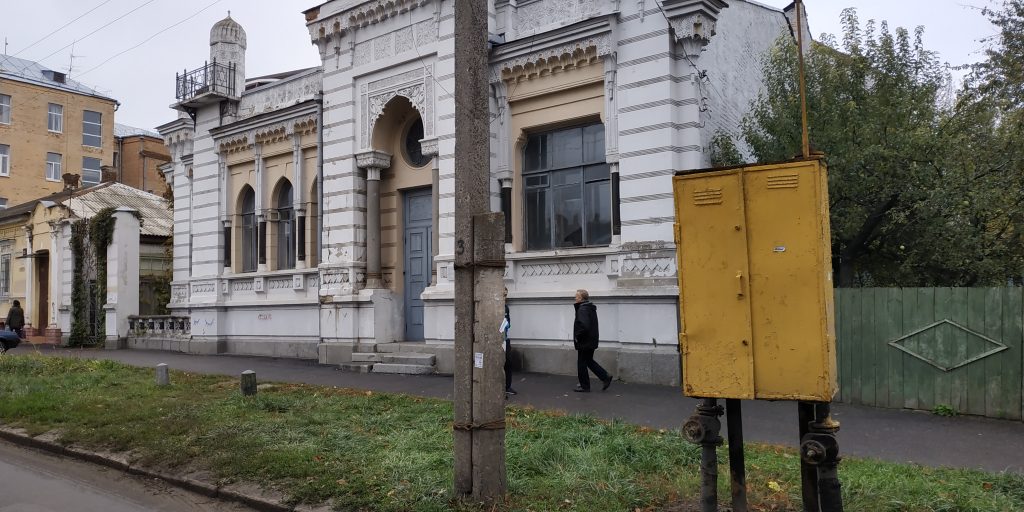A tragedy that became normal
Journal of a special trip by Chief Rabbi Jacobs in Ukraine (2)-
Last night I tried to go to bed in time, to get rested for our journey today. But something troubled me; I could not break free of the extreme poverty I had seen that day. Very expensive medicines, no insurance, pensions that are not worth mentioning, corrupt doctors, tiny houses – either freezing or overheated, harrowing stories, elderly people who languish after a life of hardship …
That lonely, unmarried man who is too ill to be able to go down the stairs to do his shopping. That woman who only cries because she cannot repay the loan to the bank. The still relatively young teacher who gets fewer teaching hours because her history class is less popular than a while ago, resulting in less salary, while the basic necessities of life become more and more expensive. In addition, she takes care of her 85-year-old blind mother who survived the Holocaust. The only one out of a big family. In the dark room only a small lamp is lit.
Many people may be accustomed to donate for unexpected disasters that happen around the world. There is no sudden disaster here in Ukraine. It is a tragedy that has become normal, that seems unsolvable and those people who should have been happy, suffer from a burden that is too heavy.
But nevertheless: ‘Am Yisrael Chai’ – the Jewish people live and survive. Nicely said, I hear myself say. And yet it is true. ‘Am Yisrael Chai’, despite everything, we still exist. Of course thanks to the help from Above! But also thanks to the help of the Christian world. Centuries ago that was unthinkable.
We were allowed to wake up a bit later today. After the morning prayer and breakfast (which looked more like a dinner) we stepped into the car of the rabbi: a tour through Poltava. On the left a former synagogue, on the right a synagogue, here was the house of the rabbi, that building was the school, behind it the mikveh (the ritual bath), there lived the cantor, and this street is still called the Shalom Aleichem street. Only Jews lived here and the spoken language was Yiddish. Even the few non-Jews who lived here spoke Yiddish. Left, behind that big building was the matzah factory, and there … and there …! Forty percent of the hundred thousand inhabitants were Jewish and more than half of them orthodox.
Back to the house of the rabbi, the centre of the Jewish community in Poltava. Loading our suitcases and on our way to Hoditz, where we will spend the Shabbat. Usually I have a happy feeling when it is almost Shabbat, a sense of calmness comes over me. But today … I feel depressed. How can we support those poverty-stricken descendants? Is it still possible to help them?
During the home visits I sometimes got the feeling that some people live in a coffin. No contact with the outside world, inside dark and stale, barely enough to eat, a future that is black. The food parcels that the rabbi will distribute with Hanukkah, on behalf of Christians for Israel, will bring some light into the darkness.
The problems seem almost insolvable. And yet, we sat down and discussed it with the rabbi. The rabbi wants to arrange a reliable doctor to investigate Mr. Futerfass, so that he will receive the medicine he needs. Instead of the medicine that he now uses that increase the profits of the pharmacist and the doctors. Do I see everything too negative? Could it be that these poverty-stricken unfortunates are being abused …? Unfortunately, it is reality.
We are almost in Hoditz before Shabbat starts. Rest for us, but will there be peace for those whom we were allowed to visit last night in the slums of Poltava?
Shabbat Shalom!
We hope to distribute thousands of food parcels to the Jewish communities in Ukraine this coming winter. We need your support!
One food parcel costs € 10 or US $ 12. Will you help?
Donate in €
Donate in US $
